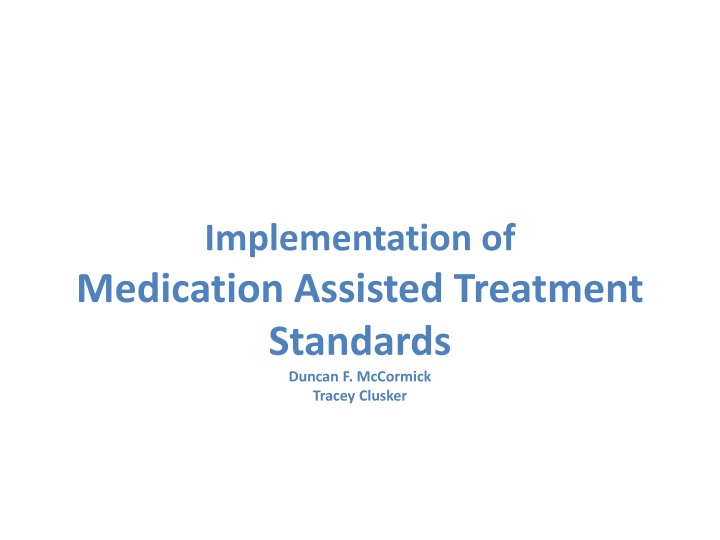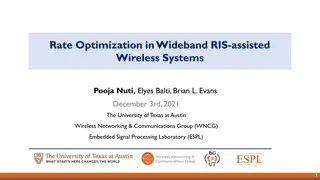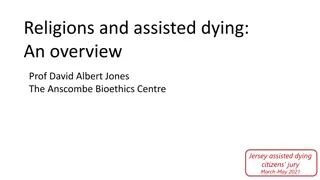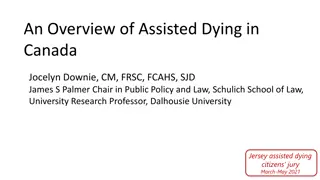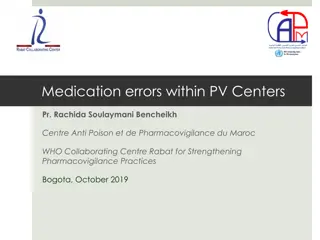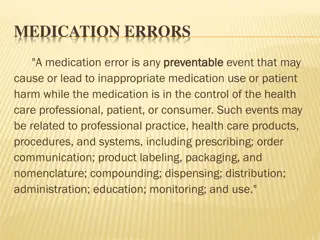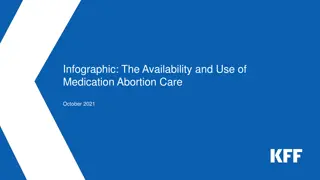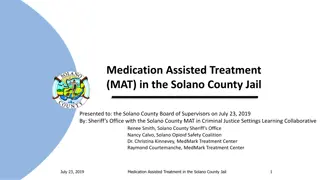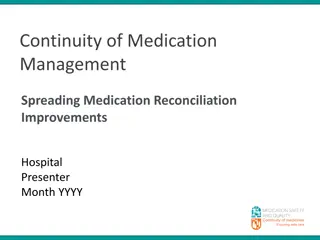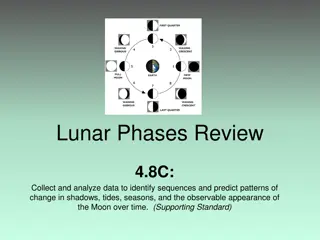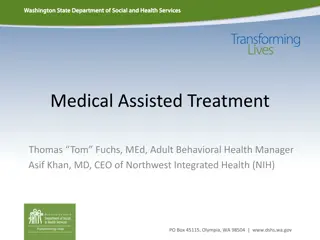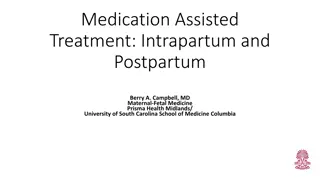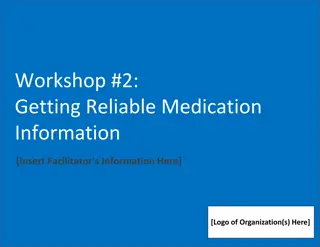Implementation of Medication Assisted Treatment Standards and Phases to Evidence Implementation
The Medication Assisted Treatment (MAT) Implementation Support Team (MIST) aims to enhance local teams' capacity to implement MAT standards through various methods including clinical QI, evidence collection, information governance, and leadership. The evidence implementation involves three phases: short term for rapid variation, medium term for local systems development, and longer term for nationwide improvement. Local teams are key in collecting and reporting quantitative and experiential evidence, with MIST providing support and promoting standardization. Training, tools, and networking play crucial roles in strengthening the implementation process.
Download Presentation

Please find below an Image/Link to download the presentation.
The content on the website is provided AS IS for your information and personal use only. It may not be sold, licensed, or shared on other websites without obtaining consent from the author.If you encounter any issues during the download, it is possible that the publisher has removed the file from their server.
You are allowed to download the files provided on this website for personal or commercial use, subject to the condition that they are used lawfully. All files are the property of their respective owners.
The content on the website is provided AS IS for your information and personal use only. It may not be sold, licensed, or shared on other websites without obtaining consent from the author.
E N D
Presentation Transcript
Implementation of Medication Assisted Treatment Standards Duncan F. McCormick Tracey Clusker
MIST programme The role of the MAT Implementation Support Team (MIST) is to build sustainable capacity in local teams so that they can implement the MAT standards 1. Clinical QI methods 2. Collection of process evidence 3. Collection of quantitative evidence 4. Collection of experiential evidence 5. Information governance 6. Project management 7. Funding 8. National work streams 9. Reporting and evaluation 10.Leadership, accountability and quality assurance
3 Phases to Evidence Implementation - Numerical Short term till March 2022 Rapid, small scale, ad hoc, variation Medium term FY 2022 local systems, less variation, feedback challenges and learning to national/Daisy Longer term FY2023 Daisy + other means
Establish local capacity for the collection, reporting and use of quantitative evidence of implementation Local teams will Identify an analyst to collect data Identify the data sources and current status/capacity to obtain, analyse and report the as set out in the MAT standards. Identify the gaps/challenges/barriers/solutions Make a plan for obtaining recording and reporting data to MIST Share the good practice and solutions with others including PHS, other ADPs Document IG issues Quantitative data to be collated and reported to MIST every 6/12 MIST will Provide direct support Share methods from elsewhere Liaise with PHS/Daisy on lessons to support wider indicator development Facilitate national networking to promote sharing and standardisation of methods
3 Phases to Evidence Implementation - Experiential Short term Till March 2022 Whatever is available, training & tools, new data where appropriate Medium term FY 2022 Continue to develop training & tools. Establish local teams, methods and systems for ongoing conversation and feed into improvement. Less variation, feedback challenges and learning to national, some national thematic analysis Longer term FY 2023 Strengtheand improve the systems locally and nationally
